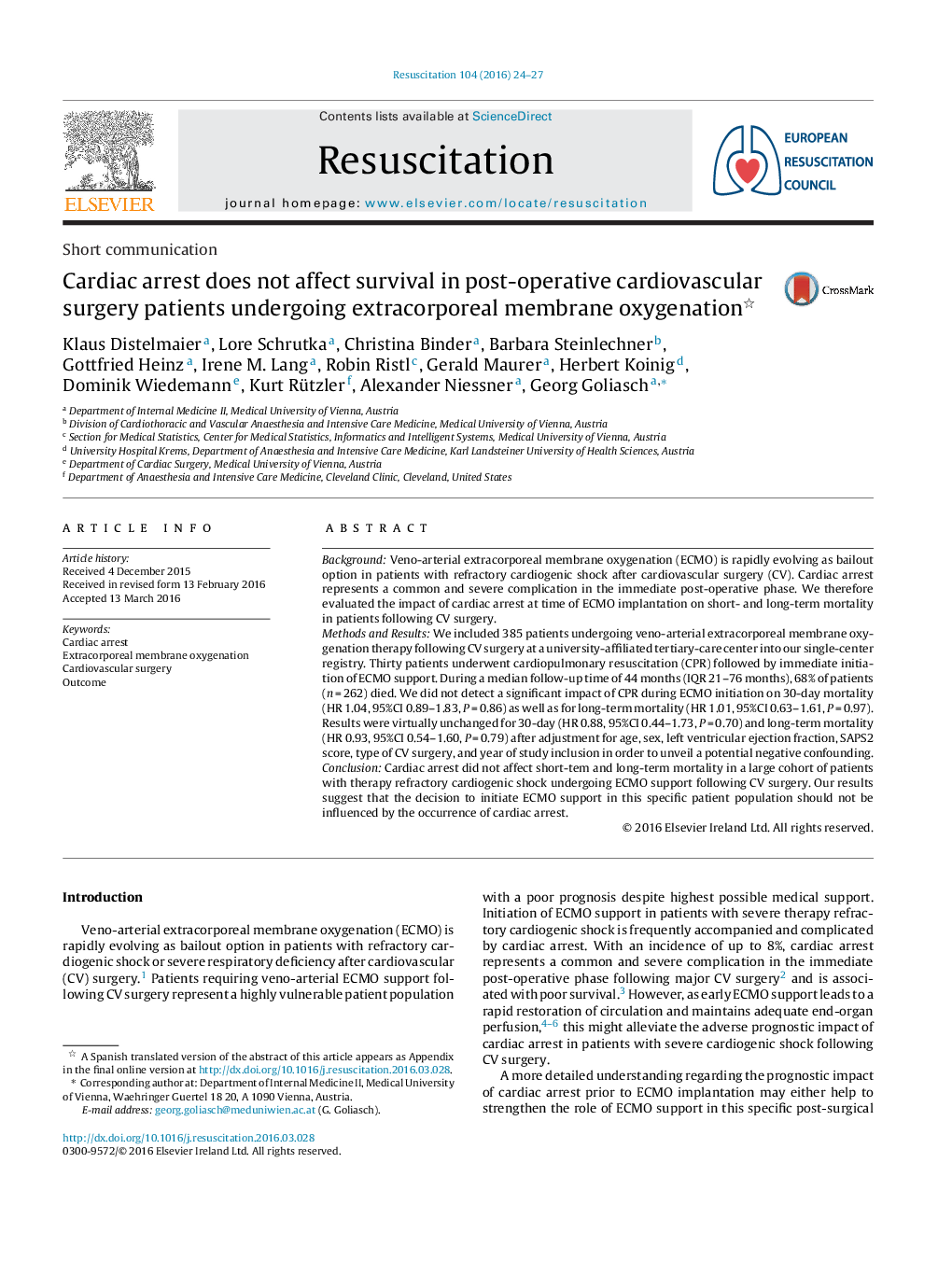| Article ID | Journal | Published Year | Pages | File Type |
|---|---|---|---|---|
| 5997255 | Resuscitation | 2016 | 4 Pages |
BackgroundVeno-arterial extracorporeal membrane oxygenation (ECMO) is rapidly evolving as bailout option in patients with refractory cardiogenic shock after cardiovascular surgery (CV). Cardiac arrest represents a common and severe complication in the immediate post-operative phase. We therefore evaluated the impact of cardiac arrest at time of ECMO implantation on short- and long-term mortality in patients following CV surgery.Methods and ResultsWe included 385 patients undergoing veno-arterial extracorporeal membrane oxygenation therapy following CV surgery at a university-affiliated tertiary-care center into our single-center registry. Thirty patients underwent cardiopulmonary resuscitation (CPR) followed by immediate initiation of ECMO support. During a median follow-up time of 44 months (IQR 21-76 months), 68% of patients (n = 262) died. We did not detect a significant impact of CPR during ECMO initiation on 30-day mortality (HR 1.04, 95%CI 0.89-1.83, P = 0.86) as well as for long-term mortality (HR 1.01, 95%CI 0.63-1.61, P = 0.97). Results were virtually unchanged for 30-day (HR 0.88, 95%CI 0.44-1.73, P = 0.70) and long-term mortality (HR 0.93, 95%CI 0.54-1.60, P = 0.79) after adjustment for age, sex, left ventricular ejection fraction, SAPS2 score, type of CV surgery, and year of study inclusion in order to unveil a potential negative confounding.ConclusionCardiac arrest did not affect short-tem and long-term mortality in a large cohort of patients with therapy refractory cardiogenic shock undergoing ECMO support following CV surgery. Our results suggest that the decision to initiate ECMO support in this specific patient population should not be influenced by the occurrence of cardiac arrest.
